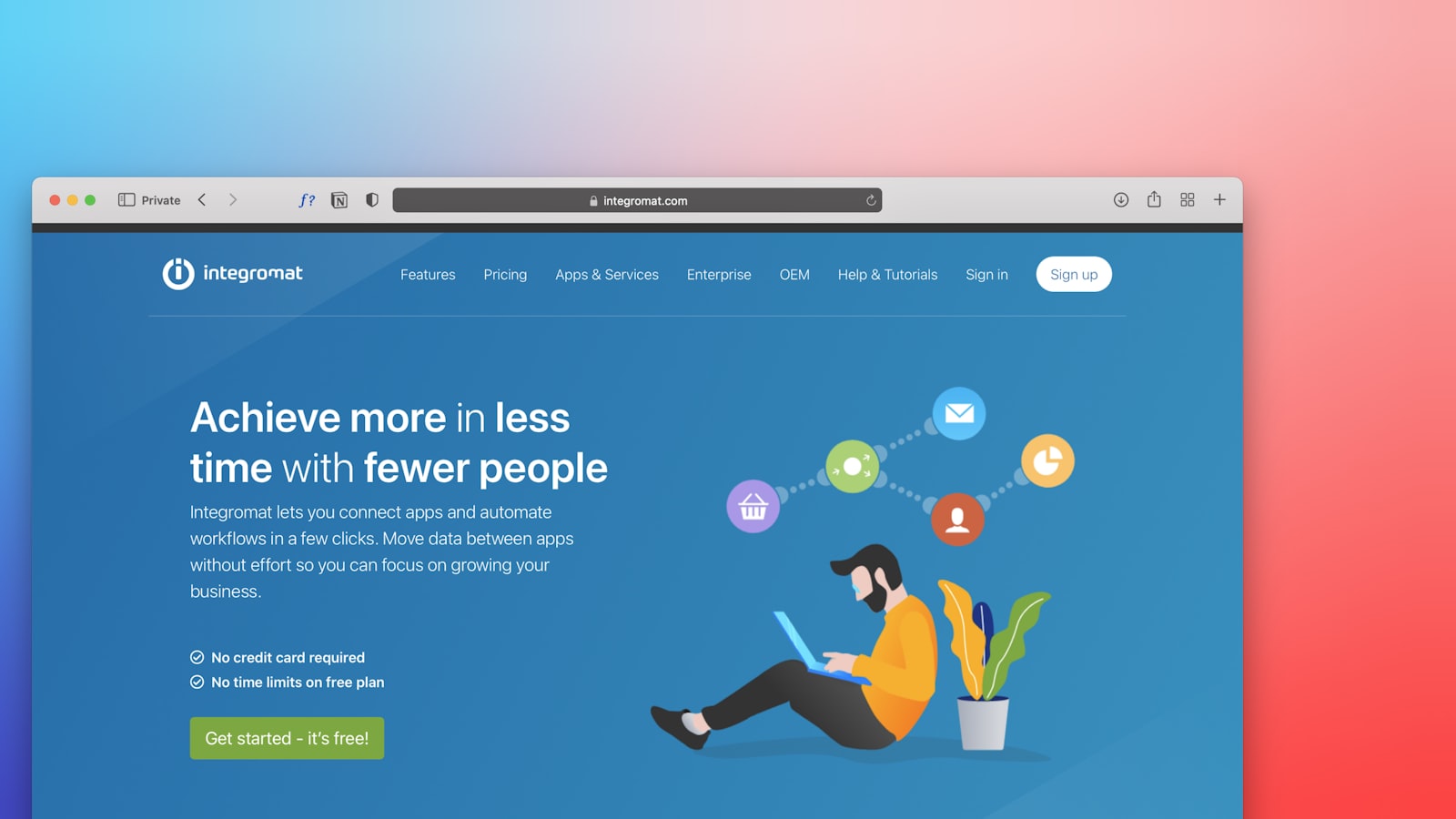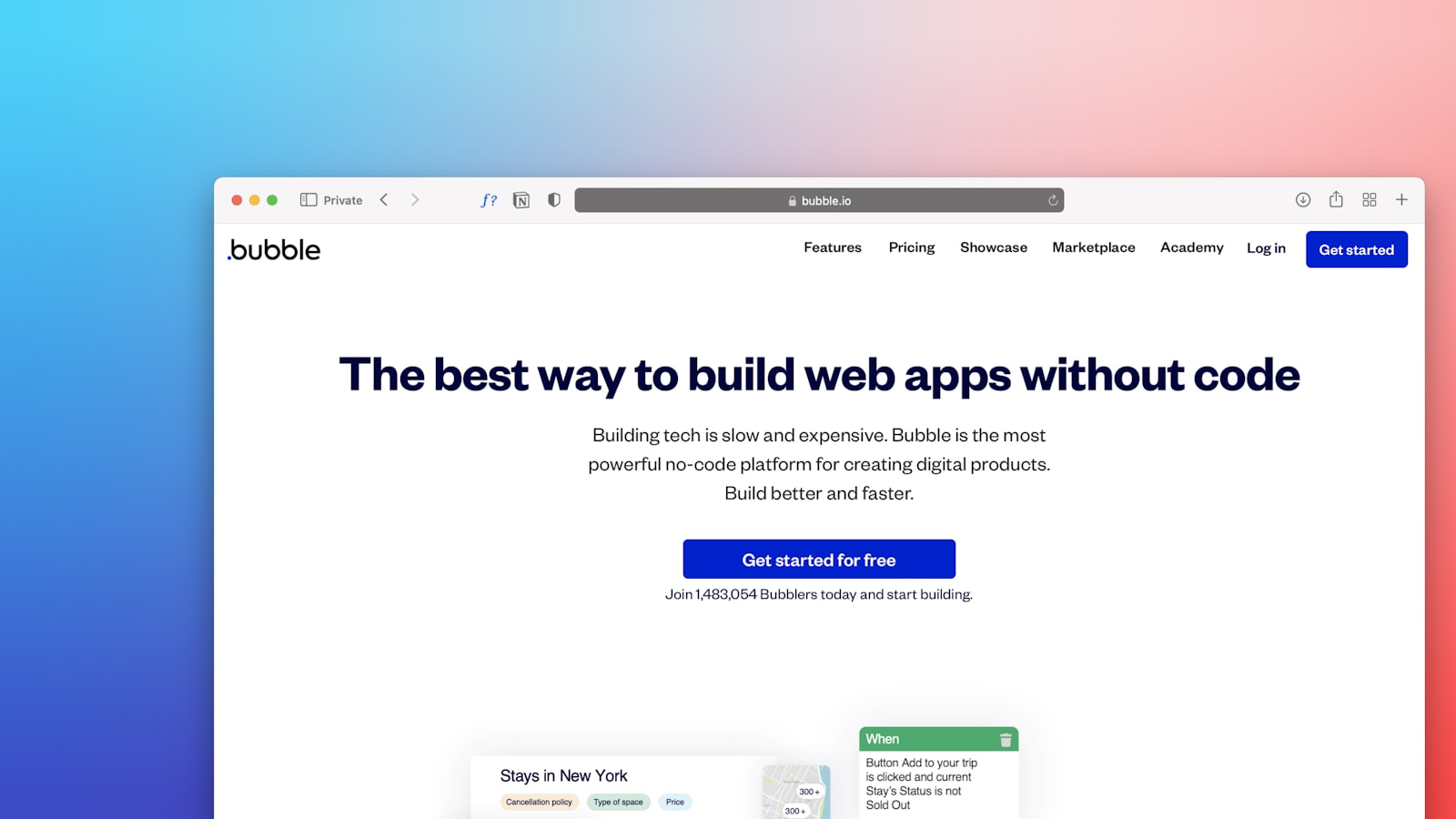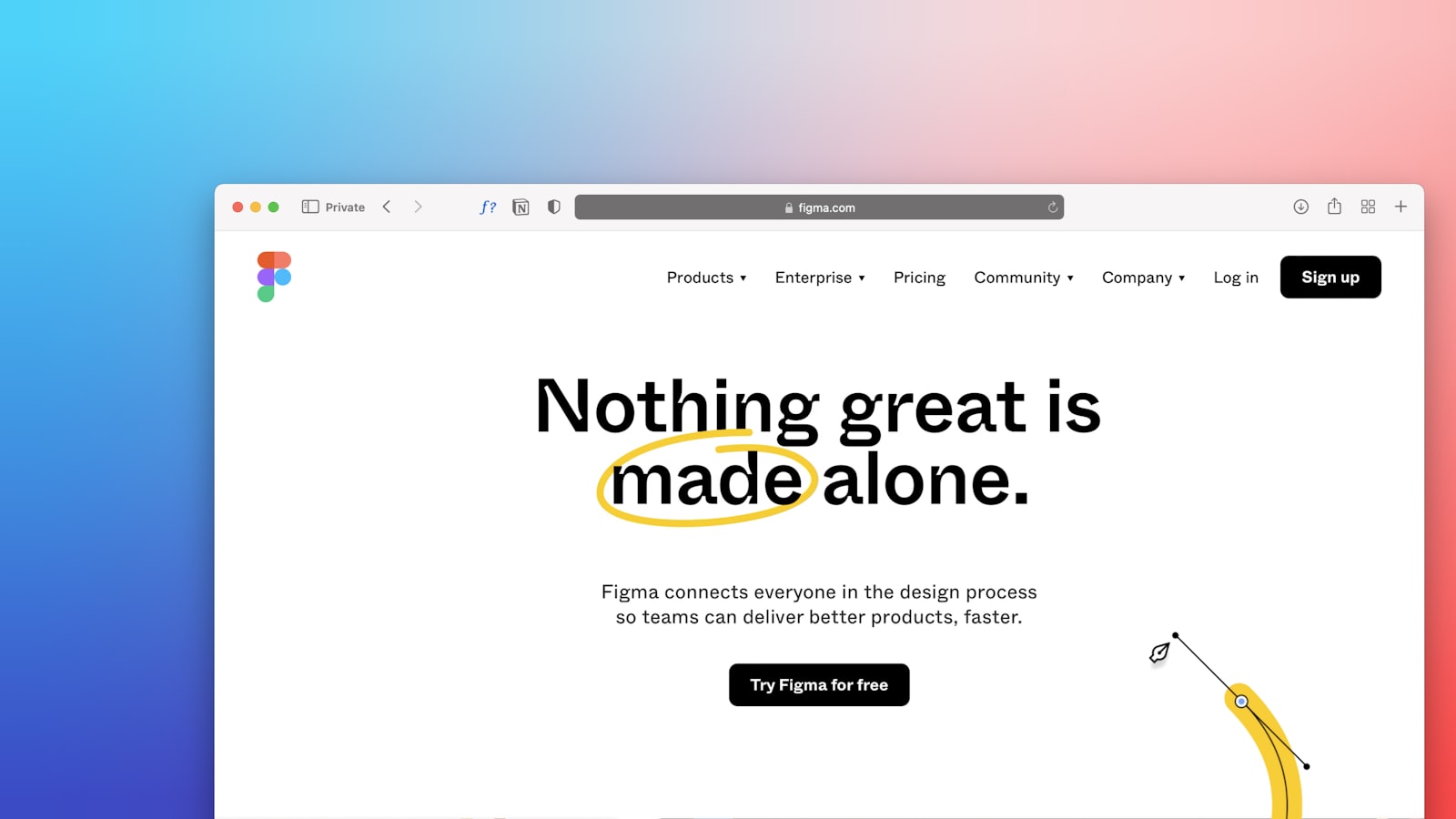How to Choose the Right B2B CRM Solution for Your Business
How to Choose the Right B2B CRM Solution for Your Business
How to Choose the Right B2B CRM Solution for Your Business
Discover how to choose the right B2B CRM solution for your business with our expert guide. Enhance customer relationships and streamline operations today.
Discover how to choose the right B2B CRM solution for your business with our expert guide. Enhance customer relationships and streamline operations today.



Introduction
The Importance of a B2B CRM Solution
Alright, let’s talk B2B CRM solutions. If you're still juggling spreadsheets and sticky notes to manage your customer relationships, it’s time for a serious upgrade. A robust B2B CRM solution isn’t just a fancy tool; it’s the backbone of any thriving sales operation. It helps streamline processes, enhance customer interactions, and ultimately, drive revenue. Trust me, your future self will thank you for making this switch.
Common Challenges in B2B Sales Processes
We’ve all been there – the endless email chains, lost leads, and the dreaded data entry. The B2B sales process is rife with challenges that can make even the most seasoned sales pro break a sweat. From inconsistent follow-ups to poor data management, these hurdles can cripple your sales performance. But hey, don’t sweat it – the right CRM solution can turn these nightmares into a well-oiled machine. Stick around, and we'll show you how to pick the perfect one for your business.
Ready to say goodbye to chaos and hello to efficiency? Let’s dive into the nitty-gritty of choosing the right B2B CRM solution that’s tailor-made for your needs. We’ll cover everything from functionality and scalability to integration and user adoption. So, grab a coffee, settle in, and let’s get your CRM game on point.
Understanding B2B CRM
What is a B2B CRM?
A B2B CRM (Customer Relationship Management) system is a specialized tool designed to manage and optimize interactions with business clients throughout the sales cycle. Unlike B2C (Business-to-Consumer) CRMs, which focus on individual customers, B2B CRMs are tailored to handle the complexities of business relationships, such as managing multiple stakeholders, longer sales cycles, and higher-value transactions.
In essence, a B2B CRM helps businesses streamline their sales processes, improve customer relationships, and drive growth by providing a centralized platform for all customer-related data and activities.
Key Features of B2B CRM Software
When choosing a B2B CRM solution, it's essential to look for features that address the unique needs of B2B sales processes. Here are some key features to consider:
Lead Management: Track and manage leads from initial contact to conversion, ensuring no opportunity slips through the cracks.
Sales Pipeline Management: Visualize and manage your sales pipeline to monitor progress and identify bottlenecks.
Contact Management: Maintain detailed records of all business contacts, including communication history and key decision-makers.
Analytics and Reporting: Gain insights into sales performance, customer behavior, and market trends with robust analytics and reporting tools.
Automation: Automate repetitive tasks such as follow-up emails, data entry, and appointment scheduling to save time and increase efficiency.
Integration Capabilities: Seamlessly integrate with other business tools like email marketing platforms, ERP systems, and social media channels.
Differences Between B2B and B2C CRM
While both B2B and B2C CRMs aim to improve customer relationships and drive sales, they cater to different types of businesses and have distinct features:
Sales Cycle Length: B2B sales cycles are typically longer and involve multiple touchpoints and decision-makers, whereas B2C sales cycles are shorter and more transactional.
Customer Relationships: B2B CRMs focus on building long-term relationships with fewer, high-value clients, while B2C CRMs handle a larger volume of individual customers with shorter-term interactions.
Customization: B2B CRMs often require more customization to cater to the specific needs of different industries and business processes, whereas B2C CRMs are generally more standardized.
Data Complexity: B2B CRMs manage more complex data, including multiple contacts per account, detailed purchase histories, and intricate sales processes, compared to the simpler data structures in B2C CRMs.

For more insights on selecting the right B2B solutions for your business, check out our guide on how to choose the best B2B marketing company or our article on selecting the best B2B PPC agency.
Benefits of Implementing a B2B CRM
Streamlining Sales Processes
Implementing a B2B CRM solution can significantly streamline your sales processes. By mapping out the sales cycle within the CRM, businesses can easily track and measure each stage, from lead generation to post-sale management. This structured approach helps in identifying drop-off points and addressing customer needs more effectively. No more juggling multiple spreadsheets or losing track of leads—everything is centralized and organized.
Enhancing Team Collaboration
A B2B CRM fosters better collaboration among team members. With all customer interactions and data stored in a single platform, sales, marketing, and support teams can work together seamlessly. This shared access ensures everyone is on the same page, leading to more coordinated efforts and improved customer service. Say goodbye to information silos and hello to a more unified team.
Improving Customer Relationships
Customer relationships are the backbone of any business. A B2B CRM helps in nurturing these relationships by providing a 360-degree view of each customer. This comprehensive insight allows businesses to tailor their interactions and communications, ensuring a personalized experience for each client. Happy customers are loyal customers, and a CRM makes it easier to keep them satisfied.
Automating Repetitive Tasks
Automation is a game-changer when it comes to efficiency. A B2B CRM can automate various repetitive tasks, such as sending follow-up emails, scheduling appointments, and updating records. This automation frees up your team's time, allowing them to focus on more strategic activities like closing deals and building relationships. It's like having an extra set of hands without the additional payroll.
Data-Driven Decision Making
Data is king in today's business world, and a B2B CRM provides the data you need to make informed decisions. With detailed analytics and reporting features, you can track sales performance, customer behavior, and marketing effectiveness. This data-driven approach helps in optimizing strategies and improving overall business performance. No more guesswork—just actionable insights.

For more insights on selecting the right solutions for your business, check out our guides on choosing the best B2B marketing company and selecting the best B2B PPC agency.
Key Considerations When Choosing a B2B CRM
Understanding Your Business Needs
Before diving into the sea of B2B CRM solutions, it's crucial to understand what your business truly needs. Start by identifying the specific problems you want the CRM to solve. Are you looking to improve your sales process, enhance customer relationships, or streamline marketing efforts? Analyze your current processes, pinpoint weaknesses, and consider how a CRM can address these issues. This foundational step ensures that you choose a solution tailored to your unique requirements.
Scalability and Customization
As your business grows, so should your CRM. Scalability is key. A small business might need a simple, affordable CRM, while a mid-sized company may require more robust features like sales automation. Large enterprises often need advanced functionalities and extensive customization options. Ensure the CRM you choose can scale with your business and offers the flexibility to customize features to fit your evolving needs.
Integration Capabilities
Your CRM should play nicely with other tools in your tech stack. Look for solutions that offer seamless integration with your existing systems, such as marketing automation tools, customer service platforms, and IT infrastructure. This integration creates a unified approach, ensuring all departments can access and utilize customer data effectively. For more insights on choosing the best B2B solutions, check out our guide on how to choose the best B2B marketing company for your business.
User Experience and Ease of Use
A CRM is only as good as its adoption rate. If your team struggles to use it, the investment is wasted. Prioritize user experience and ease of use. Look for a CRM with an intuitive interface, short setup time, and a manageable learning curve. The easier it is for your team to navigate and utilize the system, the more effective it will be in driving results.
Pricing and ROI
Finally, consider the cost and potential return on investment (ROI). Understand the pricing structures of different CRM providers and align them with your budget. While it's tempting to go for the cheapest option, remember that a CRM is an investment in your business's future. Evaluate the features and benefits against the cost to ensure you’re getting the best value. To dive deeper into evaluating and choosing the best solutions, you might find our article on how to evaluate and choose the best SaaS PPC agency helpful.

Choosing the right B2B CRM is a strategic decision that involves understanding your business needs, ensuring scalability, evaluating integration capabilities, prioritizing user experience, and considering pricing and ROI. Take your time to assess different options, involve your team in the decision-making process, and choose a CRM that will support your business’s growth and efficiency.
Top B2B CRM Solutions in the Market
Overview of Leading B2B CRM Tools

BIGContacts
BIGContacts is known for its simplicity and powerful features. It's perfect for small to mid-sized businesses looking for an easy-to-use CRM with robust contact management capabilities.
ActiveCampaign
ActiveCampaign excels in email marketing automation and customer experience automation. It's ideal for businesses that want to integrate their CRM with marketing efforts seamlessly.
HubSpot CRM
HubSpot CRM offers a free version with a broad range of features, making it a popular choice for startups and small businesses. It provides excellent integration with other HubSpot tools.
Salesforce CRM
Salesforce CRM is a powerhouse in the CRM market, offering extensive customization and scalability. It's suitable for businesses of all sizes, especially those with complex sales processes.
Pipedrive CRM
Pipedrive CRM focuses on sales pipeline management, making it a favorite among sales teams. Its visual pipeline and automation features help streamline sales activities.
Zoho CRM
Zoho CRM provides a comprehensive suite of features at an affordable price. It's highly customizable and integrates well with other Zoho products, making it a versatile option for various business needs.
Freshworks CRM
Freshworks CRM, formerly known as Freshsales, offers AI-powered lead scoring and a user-friendly interface. It's a great choice for businesses looking to leverage AI in their sales processes.
Detailed Comparison of Features and Pricing
When choosing a B2B CRM solution, it's essential to compare features and pricing to find the best fit for your business. Here's a quick comparison of the leading tools:
BIGContacts: Simple interface, robust contact management, affordable pricing.
ActiveCampaign: Excellent for email marketing automation, customer experience automation, mid-range pricing.
HubSpot CRM: Free version available, broad range of features, integrates with HubSpot tools, scalable pricing.
Salesforce CRM: Highly customizable, scalable, extensive features, higher pricing.
Pipedrive CRM: Focus on sales pipeline management, visual pipeline, automation features, mid-range pricing.
Zoho CRM: Comprehensive suite, affordable, integrates with Zoho products, customizable pricing.
Freshworks CRM: AI-powered lead scoring, user-friendly, mid-range pricing.
For more insights on choosing the best B2B solutions, check out our guides on B2B marketing companies and B2B PPC agencies.
How to Successfully Implement a B2B CRM
Steps to Implementing a B2B CRM

Implementing a B2B CRM can seem daunting, but with a structured approach, it becomes manageable. Here are the key steps to ensure a smooth implementation:
Understand Your Sales Process: Define your goals, key performance indicators (KPIs), and lead flow. Knowing your process inside out is crucial.
Map Out an Implementation Plan: Assign key roles, draft a timeline, and ensure everyone knows their responsibilities.
Define Settings & Customizations: Set up company profiles, user permissions, and sales pipelines tailored to your business needs.
Clean and Migrate Data: Ensure data accuracy and back up all information before migration.
Connect with Other Tools: Integrate your CRM with email, lead generation, project management, and other essential tools.
Configure Sales Pipeline: Customize the pipeline to match your sales process.
Set Up Automations: Automate email follow-ups, lead assignments, and reminders to streamline operations.
Document and Train: Establish usage policies and provide thorough training for your team.
Measure, Audit, and Improve: Continuously track CRM usage and refine processes for better efficiency.
Best Practices for CRM Adoption
Adopting a new CRM involves more than just installing software. Here are some best practices to ensure successful adoption:
Get Executive Buy-In: Ensure that leadership is on board and actively supports the CRM initiative.
Communicate Benefits: Clearly communicate the benefits of the CRM to all team members to gain their support.
Start Small: Begin with a pilot program to iron out any issues before a full-scale rollout.
Provide Continuous Training: Offer ongoing training sessions to keep everyone up-to-date with new features and best practices.
Gather Feedback: Regularly collect feedback from users to make necessary adjustments and improvements.
Training and Support for Your Team
Training and support are critical for successful CRM implementation. Here’s how to ensure your team is well-prepared:
Comprehensive Training Programs: Develop training programs that cover all aspects of the CRM, from basic functions to advanced features.
Role-Based Training: Tailor training sessions to different roles within the organization to ensure relevance.
Ongoing Support: Provide continuous support through help desks, FAQs, and regular check-ins.
Encourage Peer Learning: Foster a culture of knowledge sharing where team members can learn from each other’s experiences.
Measuring Success and ROI
To determine the success of your CRM implementation, it’s essential to measure key metrics and ROI. Here’s how:
Define Success Metrics: Identify the KPIs that matter most to your business, such as lead conversion rates, sales cycle length, and customer retention rates.
Regular Audits: Conduct regular audits to ensure the CRM is being used effectively and to identify areas for improvement.
Analyze ROI: Compare the costs of CRM implementation and maintenance against the benefits, such as increased sales and improved customer relationships.
Adjust Strategies: Use the data collected to refine your sales and marketing strategies for better results.
Implementing a B2B CRM is a significant step towards enhancing your sales processes and customer relationships. For more insights on selecting the right solutions for your business, check out our guide on how to choose the best B2B marketing company for your business.
Conclusion

Recap of Key Points
Choosing the right B2B CRM solution can feel like navigating a maze, but let’s simplify it. Here's a quick recap of the key points we've covered:
Understanding B2B CRM: Recognize the unique features and benefits of B2B CRM software compared to B2C CRM.
Benefits of Implementation: Streamline sales processes, enhance team collaboration, improve customer relationships, automate tasks, and make data-driven decisions.
Key Considerations: Assess your business needs, ensure scalability and customization, check integration capabilities, prioritize user experience, and evaluate pricing and ROI.
Top Solutions: Consider leading tools like BIGContacts, ActiveCampaign, HubSpot CRM, Salesforce CRM, Pipedrive CRM, Zoho CRM, and Freshworks CRM.
Successful Implementation: Follow best practices for CRM adoption, provide training and support for your team, and measure success and ROI.
Final Thoughts on Choosing the Right B2B CRM
Picking the perfect B2B CRM solution is like finding the right pair of shoes – it needs to fit well and support your journey. Start by understanding your unique business requirements. Remember, a CRM that scales with your growth and integrates seamlessly with your existing tools will save you headaches down the road.
Don’t forget to factor in user experience; a CRM that's a joy to use will see higher adoption rates among your team. And, of course, keep an eye on the price tag and the potential return on investment. Sometimes, spending a bit more upfront can lead to substantial gains in efficiency and customer satisfaction.
If you're still on the fence, check out our other guides on selecting the best solutions for your business needs:
How to Choose the Best B2B Marketing Company for Your Business
How to Evaluate and Choose the Best SaaS PPC Agency for Your Business
How to Select the Best B2B Demand Generation Agency for Your Business
Ultimately, the right B2B CRM will be a game-changer for your business, helping you manage relationships, streamline processes, and drive growth. Choose wisely, and your CRM will be a trusted partner in your success.
Introduction
The Importance of a B2B CRM Solution
Alright, let’s talk B2B CRM solutions. If you're still juggling spreadsheets and sticky notes to manage your customer relationships, it’s time for a serious upgrade. A robust B2B CRM solution isn’t just a fancy tool; it’s the backbone of any thriving sales operation. It helps streamline processes, enhance customer interactions, and ultimately, drive revenue. Trust me, your future self will thank you for making this switch.
Common Challenges in B2B Sales Processes
We’ve all been there – the endless email chains, lost leads, and the dreaded data entry. The B2B sales process is rife with challenges that can make even the most seasoned sales pro break a sweat. From inconsistent follow-ups to poor data management, these hurdles can cripple your sales performance. But hey, don’t sweat it – the right CRM solution can turn these nightmares into a well-oiled machine. Stick around, and we'll show you how to pick the perfect one for your business.
Ready to say goodbye to chaos and hello to efficiency? Let’s dive into the nitty-gritty of choosing the right B2B CRM solution that’s tailor-made for your needs. We’ll cover everything from functionality and scalability to integration and user adoption. So, grab a coffee, settle in, and let’s get your CRM game on point.
Understanding B2B CRM
What is a B2B CRM?
A B2B CRM (Customer Relationship Management) system is a specialized tool designed to manage and optimize interactions with business clients throughout the sales cycle. Unlike B2C (Business-to-Consumer) CRMs, which focus on individual customers, B2B CRMs are tailored to handle the complexities of business relationships, such as managing multiple stakeholders, longer sales cycles, and higher-value transactions.
In essence, a B2B CRM helps businesses streamline their sales processes, improve customer relationships, and drive growth by providing a centralized platform for all customer-related data and activities.
Key Features of B2B CRM Software
When choosing a B2B CRM solution, it's essential to look for features that address the unique needs of B2B sales processes. Here are some key features to consider:
Lead Management: Track and manage leads from initial contact to conversion, ensuring no opportunity slips through the cracks.
Sales Pipeline Management: Visualize and manage your sales pipeline to monitor progress and identify bottlenecks.
Contact Management: Maintain detailed records of all business contacts, including communication history and key decision-makers.
Analytics and Reporting: Gain insights into sales performance, customer behavior, and market trends with robust analytics and reporting tools.
Automation: Automate repetitive tasks such as follow-up emails, data entry, and appointment scheduling to save time and increase efficiency.
Integration Capabilities: Seamlessly integrate with other business tools like email marketing platforms, ERP systems, and social media channels.
Differences Between B2B and B2C CRM
While both B2B and B2C CRMs aim to improve customer relationships and drive sales, they cater to different types of businesses and have distinct features:
Sales Cycle Length: B2B sales cycles are typically longer and involve multiple touchpoints and decision-makers, whereas B2C sales cycles are shorter and more transactional.
Customer Relationships: B2B CRMs focus on building long-term relationships with fewer, high-value clients, while B2C CRMs handle a larger volume of individual customers with shorter-term interactions.
Customization: B2B CRMs often require more customization to cater to the specific needs of different industries and business processes, whereas B2C CRMs are generally more standardized.
Data Complexity: B2B CRMs manage more complex data, including multiple contacts per account, detailed purchase histories, and intricate sales processes, compared to the simpler data structures in B2C CRMs.

For more insights on selecting the right B2B solutions for your business, check out our guide on how to choose the best B2B marketing company or our article on selecting the best B2B PPC agency.
Benefits of Implementing a B2B CRM
Streamlining Sales Processes
Implementing a B2B CRM solution can significantly streamline your sales processes. By mapping out the sales cycle within the CRM, businesses can easily track and measure each stage, from lead generation to post-sale management. This structured approach helps in identifying drop-off points and addressing customer needs more effectively. No more juggling multiple spreadsheets or losing track of leads—everything is centralized and organized.
Enhancing Team Collaboration
A B2B CRM fosters better collaboration among team members. With all customer interactions and data stored in a single platform, sales, marketing, and support teams can work together seamlessly. This shared access ensures everyone is on the same page, leading to more coordinated efforts and improved customer service. Say goodbye to information silos and hello to a more unified team.
Improving Customer Relationships
Customer relationships are the backbone of any business. A B2B CRM helps in nurturing these relationships by providing a 360-degree view of each customer. This comprehensive insight allows businesses to tailor their interactions and communications, ensuring a personalized experience for each client. Happy customers are loyal customers, and a CRM makes it easier to keep them satisfied.
Automating Repetitive Tasks
Automation is a game-changer when it comes to efficiency. A B2B CRM can automate various repetitive tasks, such as sending follow-up emails, scheduling appointments, and updating records. This automation frees up your team's time, allowing them to focus on more strategic activities like closing deals and building relationships. It's like having an extra set of hands without the additional payroll.
Data-Driven Decision Making
Data is king in today's business world, and a B2B CRM provides the data you need to make informed decisions. With detailed analytics and reporting features, you can track sales performance, customer behavior, and marketing effectiveness. This data-driven approach helps in optimizing strategies and improving overall business performance. No more guesswork—just actionable insights.

For more insights on selecting the right solutions for your business, check out our guides on choosing the best B2B marketing company and selecting the best B2B PPC agency.
Key Considerations When Choosing a B2B CRM
Understanding Your Business Needs
Before diving into the sea of B2B CRM solutions, it's crucial to understand what your business truly needs. Start by identifying the specific problems you want the CRM to solve. Are you looking to improve your sales process, enhance customer relationships, or streamline marketing efforts? Analyze your current processes, pinpoint weaknesses, and consider how a CRM can address these issues. This foundational step ensures that you choose a solution tailored to your unique requirements.
Scalability and Customization
As your business grows, so should your CRM. Scalability is key. A small business might need a simple, affordable CRM, while a mid-sized company may require more robust features like sales automation. Large enterprises often need advanced functionalities and extensive customization options. Ensure the CRM you choose can scale with your business and offers the flexibility to customize features to fit your evolving needs.
Integration Capabilities
Your CRM should play nicely with other tools in your tech stack. Look for solutions that offer seamless integration with your existing systems, such as marketing automation tools, customer service platforms, and IT infrastructure. This integration creates a unified approach, ensuring all departments can access and utilize customer data effectively. For more insights on choosing the best B2B solutions, check out our guide on how to choose the best B2B marketing company for your business.
User Experience and Ease of Use
A CRM is only as good as its adoption rate. If your team struggles to use it, the investment is wasted. Prioritize user experience and ease of use. Look for a CRM with an intuitive interface, short setup time, and a manageable learning curve. The easier it is for your team to navigate and utilize the system, the more effective it will be in driving results.
Pricing and ROI
Finally, consider the cost and potential return on investment (ROI). Understand the pricing structures of different CRM providers and align them with your budget. While it's tempting to go for the cheapest option, remember that a CRM is an investment in your business's future. Evaluate the features and benefits against the cost to ensure you’re getting the best value. To dive deeper into evaluating and choosing the best solutions, you might find our article on how to evaluate and choose the best SaaS PPC agency helpful.

Choosing the right B2B CRM is a strategic decision that involves understanding your business needs, ensuring scalability, evaluating integration capabilities, prioritizing user experience, and considering pricing and ROI. Take your time to assess different options, involve your team in the decision-making process, and choose a CRM that will support your business’s growth and efficiency.
Top B2B CRM Solutions in the Market
Overview of Leading B2B CRM Tools

BIGContacts
BIGContacts is known for its simplicity and powerful features. It's perfect for small to mid-sized businesses looking for an easy-to-use CRM with robust contact management capabilities.
ActiveCampaign
ActiveCampaign excels in email marketing automation and customer experience automation. It's ideal for businesses that want to integrate their CRM with marketing efforts seamlessly.
HubSpot CRM
HubSpot CRM offers a free version with a broad range of features, making it a popular choice for startups and small businesses. It provides excellent integration with other HubSpot tools.
Salesforce CRM
Salesforce CRM is a powerhouse in the CRM market, offering extensive customization and scalability. It's suitable for businesses of all sizes, especially those with complex sales processes.
Pipedrive CRM
Pipedrive CRM focuses on sales pipeline management, making it a favorite among sales teams. Its visual pipeline and automation features help streamline sales activities.
Zoho CRM
Zoho CRM provides a comprehensive suite of features at an affordable price. It's highly customizable and integrates well with other Zoho products, making it a versatile option for various business needs.
Freshworks CRM
Freshworks CRM, formerly known as Freshsales, offers AI-powered lead scoring and a user-friendly interface. It's a great choice for businesses looking to leverage AI in their sales processes.
Detailed Comparison of Features and Pricing
When choosing a B2B CRM solution, it's essential to compare features and pricing to find the best fit for your business. Here's a quick comparison of the leading tools:
BIGContacts: Simple interface, robust contact management, affordable pricing.
ActiveCampaign: Excellent for email marketing automation, customer experience automation, mid-range pricing.
HubSpot CRM: Free version available, broad range of features, integrates with HubSpot tools, scalable pricing.
Salesforce CRM: Highly customizable, scalable, extensive features, higher pricing.
Pipedrive CRM: Focus on sales pipeline management, visual pipeline, automation features, mid-range pricing.
Zoho CRM: Comprehensive suite, affordable, integrates with Zoho products, customizable pricing.
Freshworks CRM: AI-powered lead scoring, user-friendly, mid-range pricing.
For more insights on choosing the best B2B solutions, check out our guides on B2B marketing companies and B2B PPC agencies.
How to Successfully Implement a B2B CRM
Steps to Implementing a B2B CRM

Implementing a B2B CRM can seem daunting, but with a structured approach, it becomes manageable. Here are the key steps to ensure a smooth implementation:
Understand Your Sales Process: Define your goals, key performance indicators (KPIs), and lead flow. Knowing your process inside out is crucial.
Map Out an Implementation Plan: Assign key roles, draft a timeline, and ensure everyone knows their responsibilities.
Define Settings & Customizations: Set up company profiles, user permissions, and sales pipelines tailored to your business needs.
Clean and Migrate Data: Ensure data accuracy and back up all information before migration.
Connect with Other Tools: Integrate your CRM with email, lead generation, project management, and other essential tools.
Configure Sales Pipeline: Customize the pipeline to match your sales process.
Set Up Automations: Automate email follow-ups, lead assignments, and reminders to streamline operations.
Document and Train: Establish usage policies and provide thorough training for your team.
Measure, Audit, and Improve: Continuously track CRM usage and refine processes for better efficiency.
Best Practices for CRM Adoption
Adopting a new CRM involves more than just installing software. Here are some best practices to ensure successful adoption:
Get Executive Buy-In: Ensure that leadership is on board and actively supports the CRM initiative.
Communicate Benefits: Clearly communicate the benefits of the CRM to all team members to gain their support.
Start Small: Begin with a pilot program to iron out any issues before a full-scale rollout.
Provide Continuous Training: Offer ongoing training sessions to keep everyone up-to-date with new features and best practices.
Gather Feedback: Regularly collect feedback from users to make necessary adjustments and improvements.
Training and Support for Your Team
Training and support are critical for successful CRM implementation. Here’s how to ensure your team is well-prepared:
Comprehensive Training Programs: Develop training programs that cover all aspects of the CRM, from basic functions to advanced features.
Role-Based Training: Tailor training sessions to different roles within the organization to ensure relevance.
Ongoing Support: Provide continuous support through help desks, FAQs, and regular check-ins.
Encourage Peer Learning: Foster a culture of knowledge sharing where team members can learn from each other’s experiences.
Measuring Success and ROI
To determine the success of your CRM implementation, it’s essential to measure key metrics and ROI. Here’s how:
Define Success Metrics: Identify the KPIs that matter most to your business, such as lead conversion rates, sales cycle length, and customer retention rates.
Regular Audits: Conduct regular audits to ensure the CRM is being used effectively and to identify areas for improvement.
Analyze ROI: Compare the costs of CRM implementation and maintenance against the benefits, such as increased sales and improved customer relationships.
Adjust Strategies: Use the data collected to refine your sales and marketing strategies for better results.
Implementing a B2B CRM is a significant step towards enhancing your sales processes and customer relationships. For more insights on selecting the right solutions for your business, check out our guide on how to choose the best B2B marketing company for your business.
Conclusion

Recap of Key Points
Choosing the right B2B CRM solution can feel like navigating a maze, but let’s simplify it. Here's a quick recap of the key points we've covered:
Understanding B2B CRM: Recognize the unique features and benefits of B2B CRM software compared to B2C CRM.
Benefits of Implementation: Streamline sales processes, enhance team collaboration, improve customer relationships, automate tasks, and make data-driven decisions.
Key Considerations: Assess your business needs, ensure scalability and customization, check integration capabilities, prioritize user experience, and evaluate pricing and ROI.
Top Solutions: Consider leading tools like BIGContacts, ActiveCampaign, HubSpot CRM, Salesforce CRM, Pipedrive CRM, Zoho CRM, and Freshworks CRM.
Successful Implementation: Follow best practices for CRM adoption, provide training and support for your team, and measure success and ROI.
Final Thoughts on Choosing the Right B2B CRM
Picking the perfect B2B CRM solution is like finding the right pair of shoes – it needs to fit well and support your journey. Start by understanding your unique business requirements. Remember, a CRM that scales with your growth and integrates seamlessly with your existing tools will save you headaches down the road.
Don’t forget to factor in user experience; a CRM that's a joy to use will see higher adoption rates among your team. And, of course, keep an eye on the price tag and the potential return on investment. Sometimes, spending a bit more upfront can lead to substantial gains in efficiency and customer satisfaction.
If you're still on the fence, check out our other guides on selecting the best solutions for your business needs:
How to Choose the Best B2B Marketing Company for Your Business
How to Evaluate and Choose the Best SaaS PPC Agency for Your Business
How to Select the Best B2B Demand Generation Agency for Your Business
Ultimately, the right B2B CRM will be a game-changer for your business, helping you manage relationships, streamline processes, and drive growth. Choose wisely, and your CRM will be a trusted partner in your success.
Introduction
The Importance of a B2B CRM Solution
Alright, let’s talk B2B CRM solutions. If you're still juggling spreadsheets and sticky notes to manage your customer relationships, it’s time for a serious upgrade. A robust B2B CRM solution isn’t just a fancy tool; it’s the backbone of any thriving sales operation. It helps streamline processes, enhance customer interactions, and ultimately, drive revenue. Trust me, your future self will thank you for making this switch.
Common Challenges in B2B Sales Processes
We’ve all been there – the endless email chains, lost leads, and the dreaded data entry. The B2B sales process is rife with challenges that can make even the most seasoned sales pro break a sweat. From inconsistent follow-ups to poor data management, these hurdles can cripple your sales performance. But hey, don’t sweat it – the right CRM solution can turn these nightmares into a well-oiled machine. Stick around, and we'll show you how to pick the perfect one for your business.
Ready to say goodbye to chaos and hello to efficiency? Let’s dive into the nitty-gritty of choosing the right B2B CRM solution that’s tailor-made for your needs. We’ll cover everything from functionality and scalability to integration and user adoption. So, grab a coffee, settle in, and let’s get your CRM game on point.
Understanding B2B CRM
What is a B2B CRM?
A B2B CRM (Customer Relationship Management) system is a specialized tool designed to manage and optimize interactions with business clients throughout the sales cycle. Unlike B2C (Business-to-Consumer) CRMs, which focus on individual customers, B2B CRMs are tailored to handle the complexities of business relationships, such as managing multiple stakeholders, longer sales cycles, and higher-value transactions.
In essence, a B2B CRM helps businesses streamline their sales processes, improve customer relationships, and drive growth by providing a centralized platform for all customer-related data and activities.
Key Features of B2B CRM Software
When choosing a B2B CRM solution, it's essential to look for features that address the unique needs of B2B sales processes. Here are some key features to consider:
Lead Management: Track and manage leads from initial contact to conversion, ensuring no opportunity slips through the cracks.
Sales Pipeline Management: Visualize and manage your sales pipeline to monitor progress and identify bottlenecks.
Contact Management: Maintain detailed records of all business contacts, including communication history and key decision-makers.
Analytics and Reporting: Gain insights into sales performance, customer behavior, and market trends with robust analytics and reporting tools.
Automation: Automate repetitive tasks such as follow-up emails, data entry, and appointment scheduling to save time and increase efficiency.
Integration Capabilities: Seamlessly integrate with other business tools like email marketing platforms, ERP systems, and social media channels.
Differences Between B2B and B2C CRM
While both B2B and B2C CRMs aim to improve customer relationships and drive sales, they cater to different types of businesses and have distinct features:
Sales Cycle Length: B2B sales cycles are typically longer and involve multiple touchpoints and decision-makers, whereas B2C sales cycles are shorter and more transactional.
Customer Relationships: B2B CRMs focus on building long-term relationships with fewer, high-value clients, while B2C CRMs handle a larger volume of individual customers with shorter-term interactions.
Customization: B2B CRMs often require more customization to cater to the specific needs of different industries and business processes, whereas B2C CRMs are generally more standardized.
Data Complexity: B2B CRMs manage more complex data, including multiple contacts per account, detailed purchase histories, and intricate sales processes, compared to the simpler data structures in B2C CRMs.

For more insights on selecting the right B2B solutions for your business, check out our guide on how to choose the best B2B marketing company or our article on selecting the best B2B PPC agency.
Benefits of Implementing a B2B CRM
Streamlining Sales Processes
Implementing a B2B CRM solution can significantly streamline your sales processes. By mapping out the sales cycle within the CRM, businesses can easily track and measure each stage, from lead generation to post-sale management. This structured approach helps in identifying drop-off points and addressing customer needs more effectively. No more juggling multiple spreadsheets or losing track of leads—everything is centralized and organized.
Enhancing Team Collaboration
A B2B CRM fosters better collaboration among team members. With all customer interactions and data stored in a single platform, sales, marketing, and support teams can work together seamlessly. This shared access ensures everyone is on the same page, leading to more coordinated efforts and improved customer service. Say goodbye to information silos and hello to a more unified team.
Improving Customer Relationships
Customer relationships are the backbone of any business. A B2B CRM helps in nurturing these relationships by providing a 360-degree view of each customer. This comprehensive insight allows businesses to tailor their interactions and communications, ensuring a personalized experience for each client. Happy customers are loyal customers, and a CRM makes it easier to keep them satisfied.
Automating Repetitive Tasks
Automation is a game-changer when it comes to efficiency. A B2B CRM can automate various repetitive tasks, such as sending follow-up emails, scheduling appointments, and updating records. This automation frees up your team's time, allowing them to focus on more strategic activities like closing deals and building relationships. It's like having an extra set of hands without the additional payroll.
Data-Driven Decision Making
Data is king in today's business world, and a B2B CRM provides the data you need to make informed decisions. With detailed analytics and reporting features, you can track sales performance, customer behavior, and marketing effectiveness. This data-driven approach helps in optimizing strategies and improving overall business performance. No more guesswork—just actionable insights.

For more insights on selecting the right solutions for your business, check out our guides on choosing the best B2B marketing company and selecting the best B2B PPC agency.
Key Considerations When Choosing a B2B CRM
Understanding Your Business Needs
Before diving into the sea of B2B CRM solutions, it's crucial to understand what your business truly needs. Start by identifying the specific problems you want the CRM to solve. Are you looking to improve your sales process, enhance customer relationships, or streamline marketing efforts? Analyze your current processes, pinpoint weaknesses, and consider how a CRM can address these issues. This foundational step ensures that you choose a solution tailored to your unique requirements.
Scalability and Customization
As your business grows, so should your CRM. Scalability is key. A small business might need a simple, affordable CRM, while a mid-sized company may require more robust features like sales automation. Large enterprises often need advanced functionalities and extensive customization options. Ensure the CRM you choose can scale with your business and offers the flexibility to customize features to fit your evolving needs.
Integration Capabilities
Your CRM should play nicely with other tools in your tech stack. Look for solutions that offer seamless integration with your existing systems, such as marketing automation tools, customer service platforms, and IT infrastructure. This integration creates a unified approach, ensuring all departments can access and utilize customer data effectively. For more insights on choosing the best B2B solutions, check out our guide on how to choose the best B2B marketing company for your business.
User Experience and Ease of Use
A CRM is only as good as its adoption rate. If your team struggles to use it, the investment is wasted. Prioritize user experience and ease of use. Look for a CRM with an intuitive interface, short setup time, and a manageable learning curve. The easier it is for your team to navigate and utilize the system, the more effective it will be in driving results.
Pricing and ROI
Finally, consider the cost and potential return on investment (ROI). Understand the pricing structures of different CRM providers and align them with your budget. While it's tempting to go for the cheapest option, remember that a CRM is an investment in your business's future. Evaluate the features and benefits against the cost to ensure you’re getting the best value. To dive deeper into evaluating and choosing the best solutions, you might find our article on how to evaluate and choose the best SaaS PPC agency helpful.

Choosing the right B2B CRM is a strategic decision that involves understanding your business needs, ensuring scalability, evaluating integration capabilities, prioritizing user experience, and considering pricing and ROI. Take your time to assess different options, involve your team in the decision-making process, and choose a CRM that will support your business’s growth and efficiency.
Top B2B CRM Solutions in the Market
Overview of Leading B2B CRM Tools

BIGContacts
BIGContacts is known for its simplicity and powerful features. It's perfect for small to mid-sized businesses looking for an easy-to-use CRM with robust contact management capabilities.
ActiveCampaign
ActiveCampaign excels in email marketing automation and customer experience automation. It's ideal for businesses that want to integrate their CRM with marketing efforts seamlessly.
HubSpot CRM
HubSpot CRM offers a free version with a broad range of features, making it a popular choice for startups and small businesses. It provides excellent integration with other HubSpot tools.
Salesforce CRM
Salesforce CRM is a powerhouse in the CRM market, offering extensive customization and scalability. It's suitable for businesses of all sizes, especially those with complex sales processes.
Pipedrive CRM
Pipedrive CRM focuses on sales pipeline management, making it a favorite among sales teams. Its visual pipeline and automation features help streamline sales activities.
Zoho CRM
Zoho CRM provides a comprehensive suite of features at an affordable price. It's highly customizable and integrates well with other Zoho products, making it a versatile option for various business needs.
Freshworks CRM
Freshworks CRM, formerly known as Freshsales, offers AI-powered lead scoring and a user-friendly interface. It's a great choice for businesses looking to leverage AI in their sales processes.
Detailed Comparison of Features and Pricing
When choosing a B2B CRM solution, it's essential to compare features and pricing to find the best fit for your business. Here's a quick comparison of the leading tools:
BIGContacts: Simple interface, robust contact management, affordable pricing.
ActiveCampaign: Excellent for email marketing automation, customer experience automation, mid-range pricing.
HubSpot CRM: Free version available, broad range of features, integrates with HubSpot tools, scalable pricing.
Salesforce CRM: Highly customizable, scalable, extensive features, higher pricing.
Pipedrive CRM: Focus on sales pipeline management, visual pipeline, automation features, mid-range pricing.
Zoho CRM: Comprehensive suite, affordable, integrates with Zoho products, customizable pricing.
Freshworks CRM: AI-powered lead scoring, user-friendly, mid-range pricing.
For more insights on choosing the best B2B solutions, check out our guides on B2B marketing companies and B2B PPC agencies.
How to Successfully Implement a B2B CRM
Steps to Implementing a B2B CRM

Implementing a B2B CRM can seem daunting, but with a structured approach, it becomes manageable. Here are the key steps to ensure a smooth implementation:
Understand Your Sales Process: Define your goals, key performance indicators (KPIs), and lead flow. Knowing your process inside out is crucial.
Map Out an Implementation Plan: Assign key roles, draft a timeline, and ensure everyone knows their responsibilities.
Define Settings & Customizations: Set up company profiles, user permissions, and sales pipelines tailored to your business needs.
Clean and Migrate Data: Ensure data accuracy and back up all information before migration.
Connect with Other Tools: Integrate your CRM with email, lead generation, project management, and other essential tools.
Configure Sales Pipeline: Customize the pipeline to match your sales process.
Set Up Automations: Automate email follow-ups, lead assignments, and reminders to streamline operations.
Document and Train: Establish usage policies and provide thorough training for your team.
Measure, Audit, and Improve: Continuously track CRM usage and refine processes for better efficiency.
Best Practices for CRM Adoption
Adopting a new CRM involves more than just installing software. Here are some best practices to ensure successful adoption:
Get Executive Buy-In: Ensure that leadership is on board and actively supports the CRM initiative.
Communicate Benefits: Clearly communicate the benefits of the CRM to all team members to gain their support.
Start Small: Begin with a pilot program to iron out any issues before a full-scale rollout.
Provide Continuous Training: Offer ongoing training sessions to keep everyone up-to-date with new features and best practices.
Gather Feedback: Regularly collect feedback from users to make necessary adjustments and improvements.
Training and Support for Your Team
Training and support are critical for successful CRM implementation. Here’s how to ensure your team is well-prepared:
Comprehensive Training Programs: Develop training programs that cover all aspects of the CRM, from basic functions to advanced features.
Role-Based Training: Tailor training sessions to different roles within the organization to ensure relevance.
Ongoing Support: Provide continuous support through help desks, FAQs, and regular check-ins.
Encourage Peer Learning: Foster a culture of knowledge sharing where team members can learn from each other’s experiences.
Measuring Success and ROI
To determine the success of your CRM implementation, it’s essential to measure key metrics and ROI. Here’s how:
Define Success Metrics: Identify the KPIs that matter most to your business, such as lead conversion rates, sales cycle length, and customer retention rates.
Regular Audits: Conduct regular audits to ensure the CRM is being used effectively and to identify areas for improvement.
Analyze ROI: Compare the costs of CRM implementation and maintenance against the benefits, such as increased sales and improved customer relationships.
Adjust Strategies: Use the data collected to refine your sales and marketing strategies for better results.
Implementing a B2B CRM is a significant step towards enhancing your sales processes and customer relationships. For more insights on selecting the right solutions for your business, check out our guide on how to choose the best B2B marketing company for your business.
Conclusion

Recap of Key Points
Choosing the right B2B CRM solution can feel like navigating a maze, but let’s simplify it. Here's a quick recap of the key points we've covered:
Understanding B2B CRM: Recognize the unique features and benefits of B2B CRM software compared to B2C CRM.
Benefits of Implementation: Streamline sales processes, enhance team collaboration, improve customer relationships, automate tasks, and make data-driven decisions.
Key Considerations: Assess your business needs, ensure scalability and customization, check integration capabilities, prioritize user experience, and evaluate pricing and ROI.
Top Solutions: Consider leading tools like BIGContacts, ActiveCampaign, HubSpot CRM, Salesforce CRM, Pipedrive CRM, Zoho CRM, and Freshworks CRM.
Successful Implementation: Follow best practices for CRM adoption, provide training and support for your team, and measure success and ROI.
Final Thoughts on Choosing the Right B2B CRM
Picking the perfect B2B CRM solution is like finding the right pair of shoes – it needs to fit well and support your journey. Start by understanding your unique business requirements. Remember, a CRM that scales with your growth and integrates seamlessly with your existing tools will save you headaches down the road.
Don’t forget to factor in user experience; a CRM that's a joy to use will see higher adoption rates among your team. And, of course, keep an eye on the price tag and the potential return on investment. Sometimes, spending a bit more upfront can lead to substantial gains in efficiency and customer satisfaction.
If you're still on the fence, check out our other guides on selecting the best solutions for your business needs:
How to Choose the Best B2B Marketing Company for Your Business
How to Evaluate and Choose the Best SaaS PPC Agency for Your Business
How to Select the Best B2B Demand Generation Agency for Your Business
Ultimately, the right B2B CRM will be a game-changer for your business, helping you manage relationships, streamline processes, and drive growth. Choose wisely, and your CRM will be a trusted partner in your success.
Need help with SEO?
Need help with SEO?
Need help with SEO?
Join our 5-day free course on how to use AI to get more traffic to your website!
Explode your organic traffic and generate red-hot leads without spending a fortune on ads
Claim the top spot on search rankings for the most lucrative keywords in your industry
Cement your position as the undisputed authority in your niche, fostering unshakable trust and loyalty
Skyrocket your conversion rates and revenue with irresistible, customer-centric content
Conquer untapped markets and expand your reach by seizing hidden keyword opportunities
Liberate your time and resources from tedious content tasks, so you can focus on scaling your business
Gain laser-sharp insights into your ideal customers' minds, enabling you to create products and content they can't resist
Harness the power of data-driven decision-making to optimize your marketing for maximum impact
Achieve unstoppable, long-term organic growth without being held hostage by algorithm updates or ad costs
Stay light-years ahead of the competition by leveraging cutting-edge AI to adapt to any market shift or customer trend
Explode your organic traffic and generate red-hot leads without spending a fortune on ads
Claim the top spot on search rankings for the most lucrative keywords in your industry
Cement your position as the undisputed authority in your niche, fostering unshakable trust and loyalty
Skyrocket your conversion rates and revenue with irresistible, customer-centric content
Conquer untapped markets and expand your reach by seizing hidden keyword opportunities
Liberate your time and resources from tedious content tasks, so you can focus on scaling your business
Gain laser-sharp insights into your ideal customers' minds, enabling you to create products and content they can't resist
Harness the power of data-driven decision-making to optimize your marketing for maximum impact
Achieve unstoppable, long-term organic growth without being held hostage by algorithm updates or ad costs
Stay light-years ahead of the competition by leveraging cutting-edge AI to adapt to any market shift or customer trend
Explode your organic traffic and generate red-hot leads without spending a fortune on ads
Claim the top spot on search rankings for the most lucrative keywords in your industry
Cement your position as the undisputed authority in your niche, fostering unshakable trust and loyalty
Skyrocket your conversion rates and revenue with irresistible, customer-centric content
Conquer untapped markets and expand your reach by seizing hidden keyword opportunities
Liberate your time and resources from tedious content tasks, so you can focus on scaling your business
Gain laser-sharp insights into your ideal customers' minds, enabling you to create products and content they can't resist
Harness the power of data-driven decision-making to optimize your marketing for maximum impact
Achieve unstoppable, long-term organic growth without being held hostage by algorithm updates or ad costs
Stay light-years ahead of the competition by leveraging cutting-edge AI to adapt to any market shift or customer trend

































































































































































































































































































































